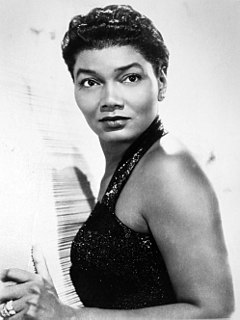A Quote by Ralph Waldo Emerson
A more secret, sweet, and overpowering beauty appears to man when his heart and mind open to the sentiment of virtue.
Related Quotes
They had been corrupted by money, and he had been corrupted by sentiment. Sentiment was the more dangerous, because you couldn’t name its price. A man open to bribes was to be relied upon below a certain figure, but sentiment might uncoil in the heart at a name, a photograph, even a smell remembered.
The deceitfulness of the heart of man appears in no one thing so much as this of spiritual pride and self-righteousness. The subtlety of Satan appears in its height, in his managing persons with respect to this sin. And perhaps one reason may be that here he has most experience; he knows the way of its coming in; he is acquainted with the secret springs of it: it was his own sin. Experience gives vast advantage in leading souls, either in good or evil.
One more royal trait properly belongs to the poet. I mean his cheerfulness, without which no man can be a poet,--for beauty is his aim. He loves virtue, not for its obligation, but for its grace; he delights in the world, in man, in woman, for the lovely light that sparkles from them. Beauty, the spirit of joy and hilarity, he sheds over the universe.
At the same time that she [nature] solicits him [man] to follow her not only into her open walks, but likewise to explore her secret recesses, she - fails not to reward him with the purest gratifications of the mind, because at every step he takes, new instances of beauty, variety, and perfection are unfolded to his view.
Prejudice is of ready application in the emergency; it previously engages the mind in a steady course of wisdom and virtue, and does not leave the man hesitating in the moment of decision, skeptical, puzzled and unresolved. Prejudice renders a man's virtue his habit; and not a series of unconnected acts. Through past prejudice, his duty becomes part of his nature.
Sweet is the rose, but grows upon a brere;
Sweet is the juniper, but sharp his bough;
Sweet is the eglantine, but stiketh nere;
Sweet is the firbloome, but its braunches rough;
Sweet is the cypress, but its rynd is tough;
Sweet is the nut, but bitter is his pill;
Sweet is the broome-flowre, but yet sowre enough;
And sweet is moly, but his root is ill.
Art itself is essentially ethical; because every true work of art must have a beauty or grandeur of some kind, and beauty and grandeur cannot be comprehended by the beholder except through the moral sentiment. The eye is only a witness; it is not a judge. The mind judges what the eye reports to it; therefore, whatever elevates the moral sentiment to the contemplation of beauty and grandeur is in itself ethical.








































